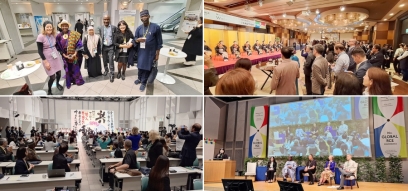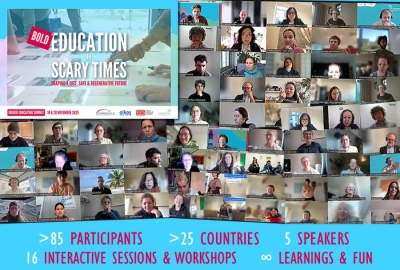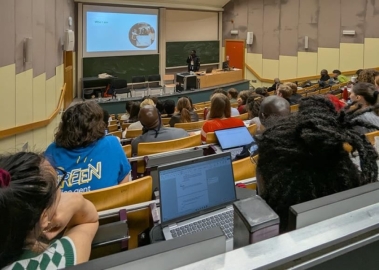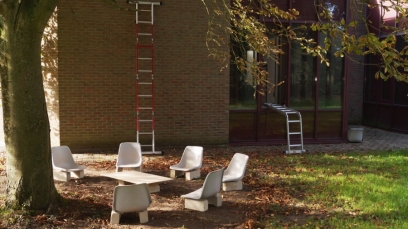The Sub-Saharan Africa Teacher Leadership for Education for Sustainable Development (SSATL-ESD) project is a transformative initiative aimed at strengthening teacher leadership in Education for Sustainable Development (ESD) in the Sub-Saharan Africa (SSA) region. This multi-country collaboration between 15 institutions from SSA and Europe, co-ordinated by Leuphana University Lüneburg and funded by the European Commission empowers educators and teacher leaders with competencies to improve the next generation’s knowledge, skills, and values for sustainable development, green economies, and culturally diverse and inclusive societies.
By 2050, half of the world’s youth will live in Africa, making education a critical driver of sustainable development. However, the Sub-Saharan Africa (SSA) region faces a teacher gap – both in the number of educators and the quality of their training. Recognizing these challenges, the new project, Sub-Saharan Africa Teacher Leadership for Education for Sustainable Development (SSATL-ESD), focuses on supporting ESD Teacher Leadership for actualizing curriculum innovations, engaged and student-centred pedagogy and assessment innovations to improve the next generation’s knowledge, skills, and values for sustainable development, green economies, and culturally diverse and inclusive societies.
At the core of the project is the novel approach of the ESD Change Project model. This is an agency-based model that invites participating ESD leaders to identify changes needed in their contexts and programmes and together with students and community stakeholders to address the required changes in their institutions and surroundings, leading to curriculum innovation. These initiatives are supported by hybrid learning environments and information and communication technology (ICT) integration, providing digital platforms and ICT-enabled learning hubs to enhance teaching capabilities and accessibility. The project places strong emphasis on multi-stakeholder collaboration, ensuring close cooperation between African and European higher education institutions, policymakers, and local communities to maximise impact and long-term sustainability.
The SSATL-ESD project is an initiative involving 15 partner institutions from Sub-Saharan Africa and Europe, including Leuphana University Lüneburg, with Prof. Dr. Daniel Fischer as Principal Investigator and Lead of the project consortium, as well as Deepika Joon and Dr. Claire Grauer as Project Coordinators, and universities in South Africa, Zambia, Namibia, Malawi, Kenya, Cyprus, and Greece. Rhodes University, represented by Distinguished Professor Heila Lotz-Sisitka and Dr. Wilma van Staden, is leading the SSA consortium and acts as focal contact point for SSA partners.
The full list of project partners is:
- Leuphana University Lüneburg, Germany
- Heidelberg University of Education, Germany
- Frederick University, Cyprus
- University of Crete, Greece
- University of Namibia, Namibia
- Namibia University of Science and Technology, Namibia
- University of Malawi, Malawi
- The Catholic University of Malawi, Malawi
- Kenyatta University, Kenya
- Jomo Kenyatta University of Agriculture and Technology, Kenya
- University of Zambia, Zambia
- Copperbelt University, Zambia
- University of the Witwatersrand Johannesburg, South Africa
- Rhodes University, South Africa
- Regional Center of Expertise on ESD, Greece
The project kicked off with an in-person meeting in Johannesburg, South Africa, from 25-28 March 2025. The event brought together 37 members from partner universities and external guests from projects, which have been successfully implemented in the region for the past years, e.g., Fundisa for Change and Sustainability Starts with Teachers. The meeting provided the opportunity for institutions forming the consortium to get to know each other, develop a shared understanding of the project and the work of local partner universities in the SSA region that it builds on.

The SSATL-ESD project is co-funded by the European Commission’s Erasmus+ Programme, which supports higher education capacity-building and international collaboration.
For more information and updates on the project, visit the Sustainability Education Transdisciplinary Research Institute (SETRI) at Leuphana University. Should you have any questions or would like to contribute, please contact the project’s coordinator, Deepika Joon, at







